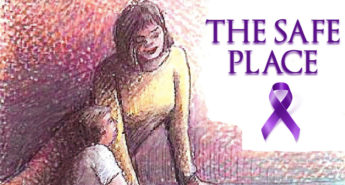 September is recognized as Suicide Awareness Month, a critical period dedicated to shedding light on the often-taboo topic of suicide. This month serves as a call to action to spread awareness, educate, and foster understanding about the complexities of mental health struggles and the factors that lead to suicide. It is a time to remember those we have lost, support those who may be struggling, and work towards creating a more compassionate and informed community.
September is recognized as Suicide Awareness Month, a critical period dedicated to shedding light on the often-taboo topic of suicide. This month serves as a call to action to spread awareness, educate, and foster understanding about the complexities of mental health struggles and the factors that lead to suicide. It is a time to remember those we have lost, support those who may be struggling, and work towards creating a more compassionate and informed community.
Many who consider suicide feel isolated, overwhelmed, and unable to see a way forward. Their struggles often stem from a complex mix of mental health conditions, such as depression or anxiety, life circumstances, trauma, and sometimes, a lack of access to appropriate mental health care. These factors create an environment where someone may feel that death is their only option.
Suicide Awareness Month is crucial in breaking down the stigma surrounding suicide and mental health issues. Stigma often prevents people from seeking the help they desperately need, fearing judgment or misunderstanding from those around them. By fostering an environment of open dialogue and education, we can challenge these misconceptions and make it easier for people to talk about their struggles without fear of reproach.
Throughout the month, organizations, communities, and individuals are encouraged to engage in activities that promote suicide awareness. This may include educational events, workshops, and campaigns aimed at understanding the warning signs of suicidal ideation, such as withdrawal from social activities, drastic changes in behavior, expressing feelings of hopelessness, or talking about wanting to die. Knowing these signs can be the first step in intervening and providing support.
Everyone can help in preventing suicide. This starts with fostering an environment where mental health conversations are normalized. Asking a friend, family member, or colleague how they are doing and genuinely listening to their response can make a significant difference. Offering a non-judgmental, empathetic ear can create a safe space for someone to share their struggles and seek support.
In addition to offering personal support, sharing resources is also crucial. The Suicide and Crisis Lifeline (Dial 988 in the U.S.) and other hotlines provide 24/7 support for anyone experiencing suicidal thoughts or emotional distress. Directing someone to these resources, or even offering to make the call together, can be life-saving.
While supporting others is vital, it is equally important to take care of your own mental health. Compassion fatigue is real, especially for those who frequently offer emotional support. Recognize your limits, set boundaries, and seek professional help if needed. Remember, self-care is not selfish – it is a necessity.
September’s Suicide Awareness Month serves as a powerful reminder of the ongoing need for education, empathy, and action. By understanding the factors contributing to suicide, recognizing the signs, and providing support, we can make a real difference in the lives of those who may be suffering in silence. Let us use this month to reflect, reach out, and advocate for a world where every individual feels seen, valued, and supported.
For more information or help:




Leave a Reply